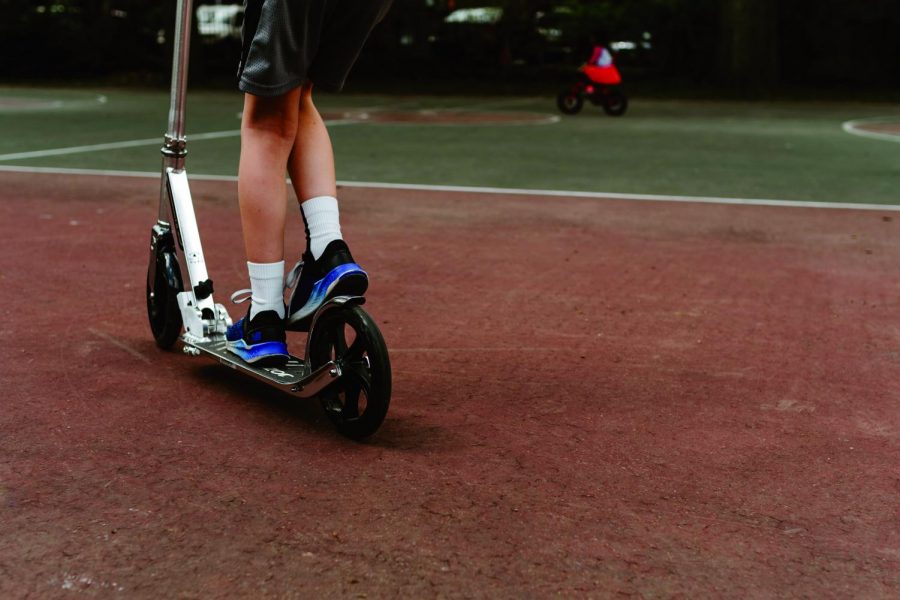So long e-scooters
UNI Housing & Dining recently announced electronic personal transportation vehicles will be banned inside on-campus housing.
Dec 6, 2021
E-bikes, e-scooters and monowheels among devices to be prohibited inside on-campus housing
Students zipping from class to class on electric scooters has become a common sight on campus this year. However, the soft whir of these devices will likely be even quieter come this spring.
On Nov. 9, UNI Housing & Dining announced that, “The use, possession, storage and/or charging of battery operated, electronic personal transportation vehicles” will be prohibited inside on-campus housing beginning at the end of the fall semester. This comes as an addition to the 2016 prohibition of hoverboards in campus housing.
Examples of soon-to-be prohibited devices include e-bikes, e-scooters and monowheels.
The department cites the risk of explosion of the lithium-ion batteries that power these devices as the primary reason for these rules. Erica Eischen, the interim director of housing, further details the decision-making process saying, “With the expansion of wheeled devices present on campus, the Office of Risk Management and Environmental Health and Safety researched to see if the safety concerns were only with hoverboard batteries or if there were other devices that had similar safety issues with their batteries. Based on the information discovered, it was decided to prohibit the possession, storage and usage of all electric vehicles in the dorms for the safety and well-being of students.”
Data from around the country exemplifies the risk that Housing & Dining are attempting to eliminate. The New York City Fire Department published in September of 2021 that 56 house fires and three deaths in New York City alone were caused by e-scooter and e-bike battery explosions within the past year.
Lithium-ion batteries have the ability to store significant amounts of energy for long periods of time, hence why they are frequently used in personal transport vehicles.
However, in the event of a malfunction or short circuit, that high amount of energy may be released all at once, creating a high risk of explosion. In addition, the batteries contain oxygen and flammable organic solvents, making them capable of sustaining fires on their own.
Freshman Derek Anderson owns an e-scooter and lives in the dorms. He gave his perspective of the situation, saying, “I wasn’t surprised that there were limits, but at the same time, I didn’t agree with the way it was enacted. Their argument was that the batteries are fire hazards, which is valid, but it kind of surprised me that that was their reasoning. I guess I would have understood it more if they were like, ‘scooters annoy people, and people get hit on the sidewalk.’”
Eischen suggests that students who currently have electronic transportation devices in on-campus housing take their devices home over winter break and leave them there or plan to store them in their vehicles when not in use.
Students living off campus will still be allowed to use these devices, so long as they are not ridden inside campus buildings. In addition, exceptions to the new policy may be made for medical reasons.
Eischen is optimistic that the transition into the new policy at the end of the semester will be smooth, saying, “Any time you make a change, it takes time to educate people about the ‘why’. Most people understand once you explain the rationale of avoiding a fire in the dorms.”
Students with further questions can contact any hall staff or UNI Housing & Dining at [email protected].















Mike • Dec 27, 2021 at 11:12 pm
Unbelievable for a campus that calls itself ‘green’. You have three bike racks on the entire campus and do little to try to stop the rash of bicycle thefts lately. So are you going to outlaw electric cars on campus!?! You site 56 accidents in New York City? What percentage of their population is that? This would equate to less than one accident every 20 years on campus!! Admit it, the administration is targeting athletes as they are the main ones who have these. My son cannot get from practice across campus to class without this mode of transportation. Wise up!!!